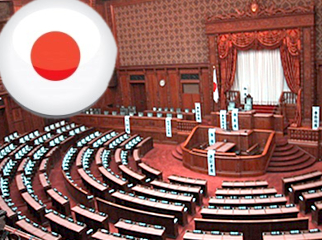 One side believes that it’s going to make it. The other isn’t so sure.
One side believes that it’s going to make it. The other isn’t so sure.
That’s the prevailing storyline coming out of Japan with regards to the country’s proposed casino bill. On the one hand, the ruling Liberal Democratic Party believes that the bill can be submitted to the current session of parliament before it ends on December 6. That was the sentiment shared by the chairman of the LDP’s General Council, Seiko Noda, when she told of the party’s intention to submit the proposal in time for the Dec. 6 cut-off.
“I think we will submit it,” Noda told reporters after the council approved the bill. “This is a first for Japan. It will be a step toward building up Japan’s status as a tourist destination.”
The latest indication that the bill could be submitted in time for the current session of parliament sparked share gains of a number of the country’s gaming companies, including Dynam Japan Holdings Co., which gained as much as 9.9 percent for the day. Likewise, Konami, Sega, and Japan Cash Machine Co. all saw their shares increase by 6, 2.9, and 4.6 percent, respectively.
Clearly, the timing of the bill’s submission is causing a lot of headlines in Japan and while the ruling party is prepared to submit the proposal to parliament, junior coalition partner New Komeito has been a little more pragmatic about submitting the bill so hastily. The party still hasn’t decided unanimously on the bill, and has repeatedly voiced concern that the proposal won’t make the session in time before it closes.
Generally, any legislation that’s submitted under the current administration has been backed by both parties. But since the LDP has a single-party majority in Japan’s lower house, it can pass the bill to parliament even without New Komeito’s support. In addition, the ruling party could also gain enough support to pass the bill in the upper house and enact the law even without the thumbs up from its junior coalition partner.
What’s becoming evident is that the LDP really wants to submit the proposal before the Dec. 6 and all points seemingly point to the submission of the legislation to the Diet sooner than later.
